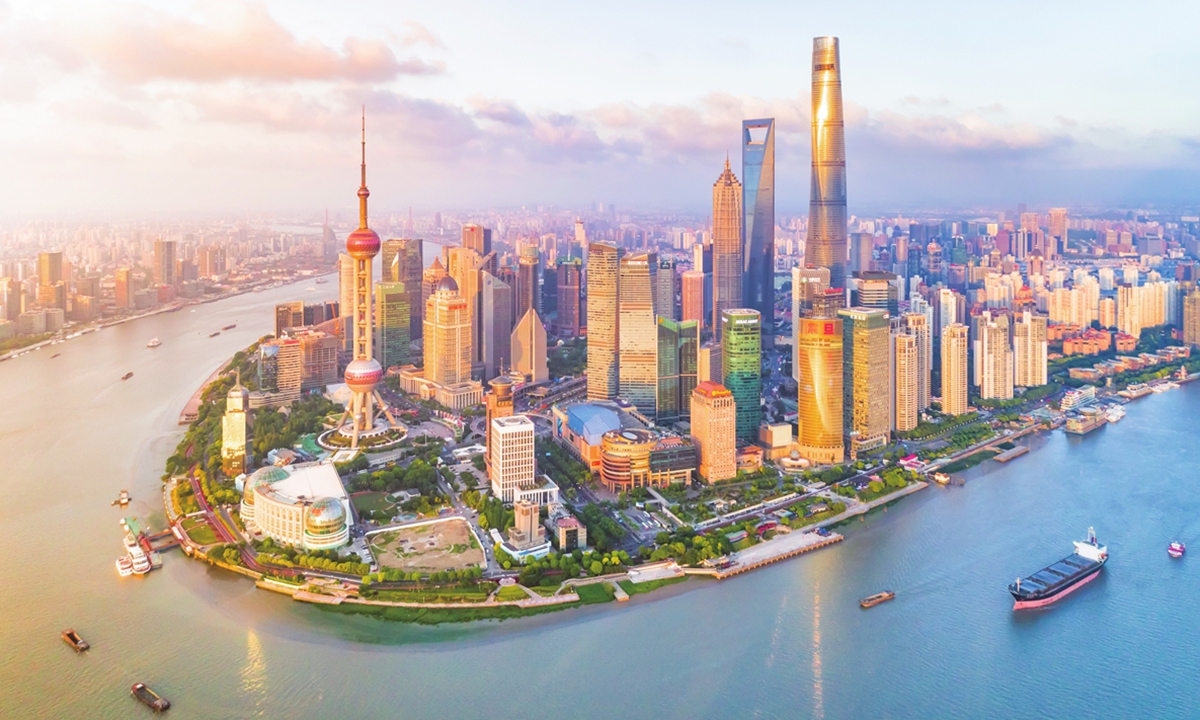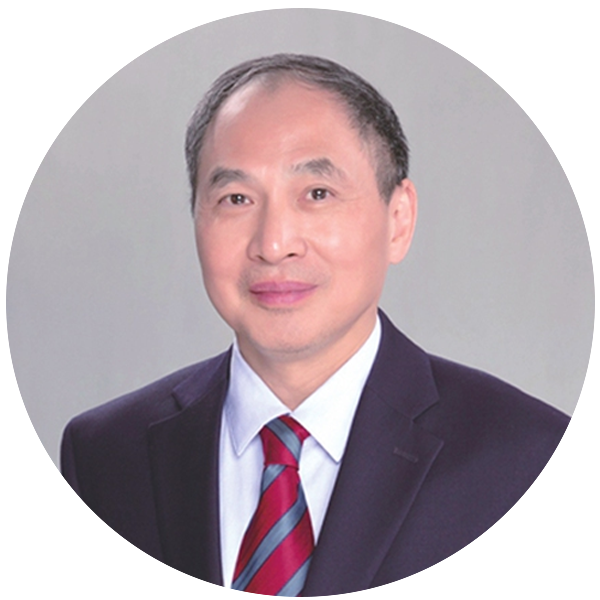
A view of Shanghai. Photo: VCG
From the perspective of openness, we are facing a transformation of almost unprecedented magnitude in the past two centuries. Western countries, led by the US, are attempting to contain and decouple from China. In such a situation, China needs high-level opening-up with regard to rules, regulations, management and standards.High-level opening-up should not only be applicable to external openness but also internal openness. China's level of internal openness is far from sufficient. We can view internal openness as the foundation for external openness - the stronger the drive for internal openness, the more impetus for external openness.
For years, we have been emphasizing the strategy of dual circulation, yet production factors between different regions remain significantly segmented and are not flowing as desired. The eastern and western regions of China possess their respective strengths; the east has advantages in manufacturing, capital, openness, management expertise and entrepreneurial spirit, while the west possesses advantages in energy resources, land and labor costs. However, these production factors aren't flowing effectively due to the lack of unified rules, regulations and standards.
The Greater Bay Area development plan, aiming at integrated development, has faced challenges. Presently, the nine cities within the mainland still lack unified rules, regulations and standards, leading to intense and unhealthy competition. To avoid excessive competition, cities must open up to each other based on unified rules, regulations and standards, allowing economic entities like enterprises to independently decide investment directions and areas.
China's enterprises are not very open to each other either. In the case of the new energy vehicle industry, both private and state-owned enterprises in China tend to have shorter industrial and supply chains compared to companies like Tesla. Tesla's supply chain is extensive, spanning across the globe. American enterprises are open to each other, and this has led to them being collectively large and strong, as enterprises can only thrive when they open up to each other, thereby forming rules and standards.
Therefore, to succeed in the strategy of dual circulation, China's internal rules and regulations must be unified to ensure inter-regional, inter-provincial and inter-city openness. Internal openness is the most essential. Without strong internal openness, achieving external openness becomes very challenging.
In the face of the current complex international environment, to achieve high-level opening-up, even if others do not open up to us, we should continue opening up to them. We are accustomed to the principle of reciprocal openness, but considering the changing global environment, China should practice even one-sided opening-up. Even when facing sanctions and decoupling from certain Western countries, we should maintain open to them and welcome their technology and market access.
Within the US, those who miss the old days of the Cold War as well as some administrative authorities are trying to contain China and decouple from it. China stands as the major global market, and such actions contradict the logic of both capital and technology, because they need outward expansion. If China practices one-sided opening-up, the administrative authorities of the US and some other Western countries would find it challenging to cut off capital and businesses operating within China's market. One-sided opening-up can leverage the logic of capital, technology and markets to counteract the political and administrative logic of anti-China forces in the West.
How should the one-sided opening-up be achieved? Extending supply chains and industrial chains is one approach. China's enterprises must extend their industrial and supply chains to Southeast Asian countries. The era of China selling whole-set products has passed and is no longer appropriate.
Overemphasis on security will lead to loss of development, and lack of development is the greatest insecurity. This rule applies to every country. We must have a correct view of the relations between security and development. The intense competition between China and the US should be recognized as a competition between who is more open rather than who is more closed. From a historical perspective, the ultimate winner in the competition will undoubtedly be the more open side.
The author is a professor at the Chinese University of Hong Kong, Shenzhen and president of The Institute for International Affairs, Qianhai. opinion@globaltimes.com.cn

